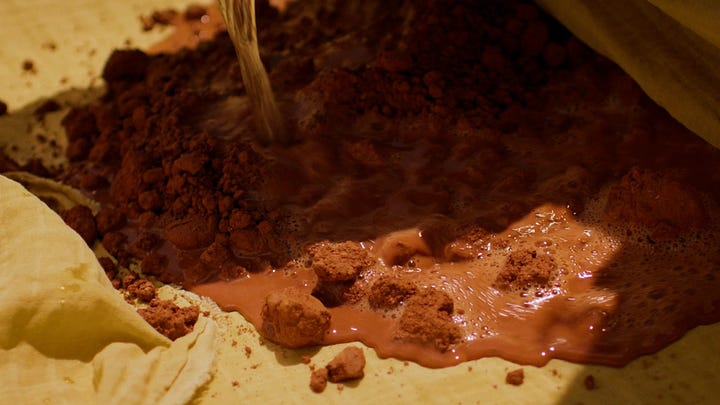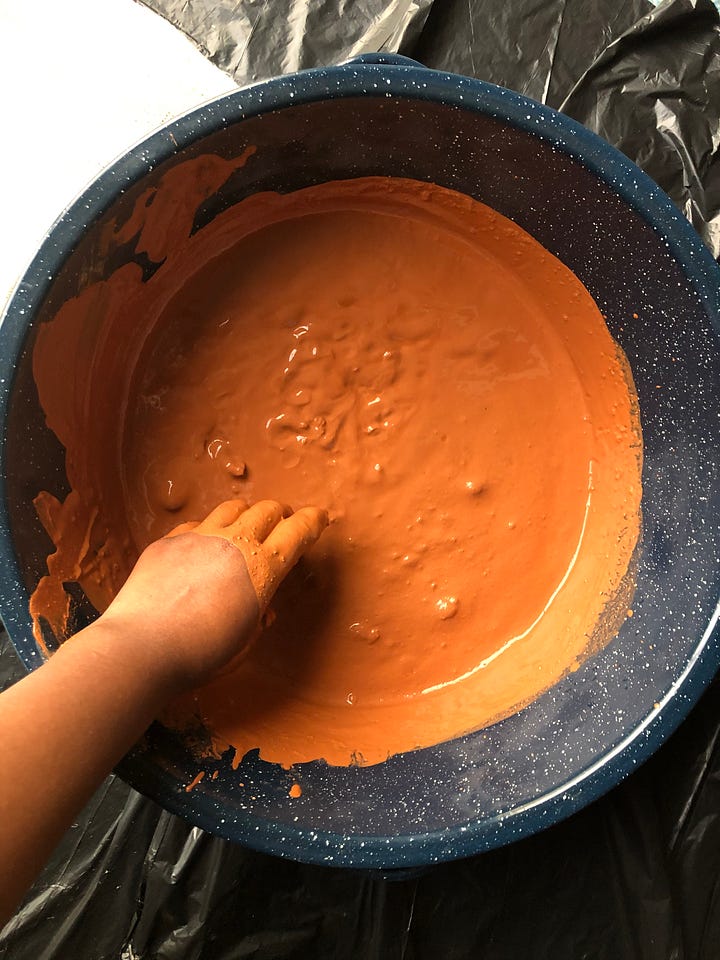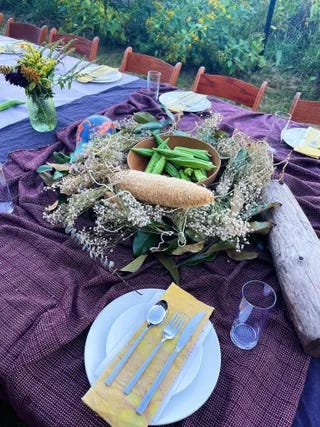Habari Gani Friends?!
It’s the 4th day of Kwanzaa, which means today’s principle is Ujamaa (Cooperative Economics). In the words of Kwanzaa Founder Dr. Maulana Karenga; it stresses the value of shared work and shared wealth, and the right of all to an equitable and just share of the common goods of the world and avoidance of damaging the earth in our economic and other pursuits.
There’s something especially timely about us embracing rituals and traditions for ourselves that align with our beliefs and center our community and planets well being. May we use our holidays to ground in what makes us feel empowered and seen.
Kwanzaa is a celebration of abundance, and you can celebrate with gestures as small as dying textiles with red clay for your table centerpiece altar, or as big as hosting friends on the final day for your Karamu Ya Imani, which translates to "Feast of Faith". I am finding joy in honoring the principles while creating my own rituals.


Kwanzaa was founded in 1966 by Dr. Maulana Karenga, professor and chairman of Black Studies at California State University. Yes, one person had an idea and activated their community around it to cultivate what became a tradition for Black people all over the Country.
He started a cultural organization called “US” and began researching traditional West African harvest or first fruit celebrations which exist in most agrarian communities. These are rituals of gratitude, usually where an offering(s) is made to say thank you to God for their access to abundance in the harvest season.
It was validating to learn that the person who started what became our cultural holiday was inspired by some of the same information that made me pursue culture work myself.
I remembering reading the book Black Rice, by Judith Carney. It was an introduction to the importance of rice culture for African people and the ways food tradition shaped so many cultural norms, responsibilities, and even spiritual practices in some cases. The word Kwanzaa means First Fruits in Swahili and the practice of leaving your first fruits in the field to say thank you in advance was and is still practiced.
Keep reading with a 7-day free trial
Subscribe to Gathered to keep reading this post and get 7 days of free access to the full post archives.




